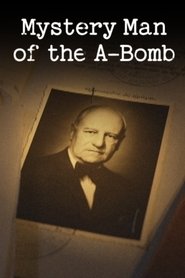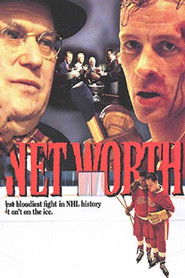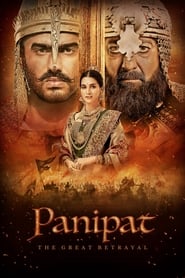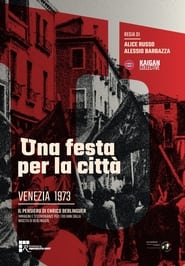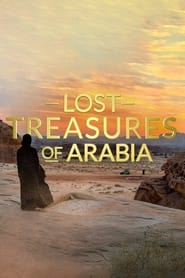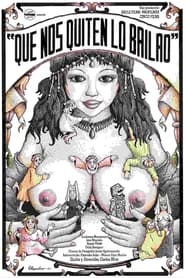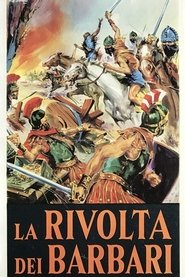Popular History Movies on Pantaflix - Page 157
-
Bakhita
2009
Bakhita
2009
star 8.3Born in a village in Sudan, kidnapped by slavers, often beaten and abused, and later sold to Federico Marin, a Venetian merchant, Bakhita then came to Italy and became the nanny servant of Federico's daughter, Aurora, who had lost her mother at birth. She is treated as an outcast by the peasants and the other servants due to her black skin and African background, but Bakhita is kind and generous to others. Bakhita gradually comes closer to God with the help of the kind village priest, and embraces the Catholic faith. She requests to join the order of Canossian sisters, but Marin doesn't want to give her up as his servant, treating her almost as his property. This leads to a moving court case that raised an uproar which impacts Bakhita's freedom and ultimate decision to become a nun. Pope John Paul II declared her a saint in the year 2000. -
Mayerling
1968
Mayerling
1968
star 6.2Crown Prince Rudolf of Austria clashes with his father, Emperor Franz Joseph I of Austria, over implementing progressive policies for their country. Rudolf soon feels he is a man born at the wrong time in a country that doesn't realize the need for social reform. The Prince of Wales, later to become Britain's King Edward VII, provides comic relief. Rudolf finds refuge from a loveless marriage with Princess Stéphanie by taking a mistress, Baroness Maria Vetsera. Their untimely demise at Mayerling, the imperial family's hunting lodge, is cloaked in mystery. -
Mystery Man of the A-Bomb
2023
Stories of the people who built the first atomic weapons are well known. But what about those who provided the uranium? We look at a mysterious man who derived huge profits from the business of war. -
Net Worth
1995
Net Worth
1995
star 6.5The story of the NHL in the 1950's, focusing on the battle between the players, led by Hall of Famer Ted Lindsay, and the owners, over issues of benefits and pensions. A dramatization based on the true story from the book of the same title. -
Panipat
2019
Panipat
2019
star 6.1During 18th century India, the Marathas emerged as the most powerful empire in the nation until the Afghan King Ahmad Shah Abdali plans to take over India. Sadashiv Rao Bhau is brought in to save the empire from the king which then leads to the third battle of Panipat. -
Príbeh o Fatime a Omarovi
1975
A television production based on the legend of the well at Trenčín Castle. In the 16th century, the lord of Trenčín Castle was Štefan Zápoľský - Duke of Transylvania, known for his hardness. He built Trenčín Castle as a fortress against the Turks, which, however, could be easily defeated because it had no water. The Turks wanted to take advantage of this fact. Zápoľský, as a good tactician, did not wait for the Turks to attack and attacked their own camp. He won and took a large number of prisoners, including the beautiful Fatima, the wife of Duke Omar. Omar decided to ransom Fatima from captivity. Zápoľský knew only one price - water at Trenčín Castle. Omar undertakes to fulfill the condition and dig a well. He keeps his word and takes Fatima and the other prisoners from Trenčín Castle. -
Lost Treasures of Arabia: The Ancient City of Dadan
2023
A team of international archeologists attempting to decipher the mysteries of the ancient city of Dadan in North West Arabia, in the area that is now Saudi Arabia. -
Ike: Countdown to D-Day
2004
star 6.4The story of the senior-level preparations for the D-Day invasion on June 6, 1944 from the time of Dwight D. Eisenhower's appointment as the Supreme Allied Commander in Europe, to the establishment of the beachhead in Normandy. -
A Tale of Samurai Cooking
2013
star 7.2In this love story set in the Edo period, 27-year-old Oharu is a genius in the kitchen. Oharu attracts the attention of the master chef of the Kaga Domain, who arranges for her to marry his son and heir, 24-year-old Yasunobu. But, Yasunobu is cold to his new wife, and he's more interested in swordplay than cookery. -
Que nos quiten lo bailao
1983
star 5A story of loves, abductions, sultans, eunuchs, dancers, pumpkins, children's cars, parades, barbarians, virgins ... All these elements are the pretext of a cinematographic spectacle, the motive of an authentic Mediterranean party, between the historical parody and the musical magazine. -
The Age of Blood
2017
The Age of Blood
2017
star 6.1Ancient Korea, 1728. Swordsman Kim Ho, guard of King Yeong-jo of Joseon, is demoted and sent to work in Uigeumbu prison. When night falls, the prison is assaulted by the master warrior Do Man-cheol and his powerful henchmen for the purpose of freeing Lee In-jwa, who has been condemned to death for rising up in revolt against the king. -
Jim Henson: His Sesame Street Story
2009
star 2This look at the contributions of Jim Henson and his early Sesame Street collaborators (including Frank Oz, Fran Brill, and Caroll Spinney) shows what made the Muppets such an integral part of the beloved show. This program is packed with rare clips from TV specials, guest appearances on talk and variety shows, and much more. -
Main Street Today
1944
Main Street Today
1944
star 6.2This patriotic short film promotes America's war effort at home. The story looks at a fictional small town's main street, seeing where additional workforce, for increased production of materials needed by the military, might come from. -
Experimenter
2015
Experimenter
2015
star 6.5Yale University, 1961. Stanley Milgram designs a psychology experiment that still resonates to this day, in which people think they’re delivering painful electric shocks to an affable stranger strapped into a chair in another room. Despite his pleads for mercy, the majority of subjects don’t stop the experiment, administering what they think is a near-fatal electric shock, simply because they’ve been told to do so. With Nazi Adolf Eichmann’s trial airing in living rooms across America, Milgram strikes a nerve in popular culture and the scientific community with his exploration into people’s tendency to comply with authority. Celebrated in some circles, he is also accused of being a deceptive, manipulative monster, but his wife Sasha stands by him through it all. -
Shattered Glass
2003
Shattered Glass
2003
star 7The true story of fraudulent Washington, D.C. journalist Stephen Glass, who rose to meteoric heights as a young writer in his 20s, becoming a staff writer at The New Republic for three years. Looking for a short cut to fame, Glass concocted sources, quotes and even entire stories, but his deception did not go unnoticed forever, and eventually, his world came crumbling down. -
Apollo: Missions to the Moon
2019
star 7.3National Geographic's riveting effort recounts all 12 crewed missions using only archival footage, photos and audio. -
The Revolt of the Barbarians
1964
star 3.8A roman consul is sent to Gaul to investigate the theft of gold shipments. He discovers that the gold is being stolen by a tribe of barbarians — whose leader is the governor of Gaul.
 Netflix
Netflix
 Amazon Prime Video
Amazon Prime Video
 Apple iTunes
Apple iTunes
 Apple TV Plus
Apple TV Plus
 Disney Plus
Disney Plus
 Google Play Movies
Google Play Movies
 Paramount Plus
Paramount Plus
 Hulu
Hulu
 HBO Max
HBO Max
 YouTube
YouTube
 fuboTV
fuboTV
 Peacock
Peacock
 Peacock Premium
Peacock Premium
 Amazon Video
Amazon Video
 The Roku Channel
The Roku Channel
 AMC+
AMC+
 Kocowa
Kocowa
 Hoopla
Hoopla
 The CW
The CW
 Vudu
Vudu
 Starz
Starz
 Showtime
Showtime
 PBS
PBS
 Pantaflix
Pantaflix
 FXNow
FXNow
 Tubi TV
Tubi TV
 Kanopy
Kanopy
 Comedy Central
Comedy Central
 Crunchyroll
Crunchyroll
 Microsoft Store
Microsoft Store
 Redbox
Redbox
 Sun Nxt
Sun Nxt
 ABC
ABC
 DIRECTV
DIRECTV
 Crackle
Crackle
 Fandor
Fandor
 Plex
Plex


